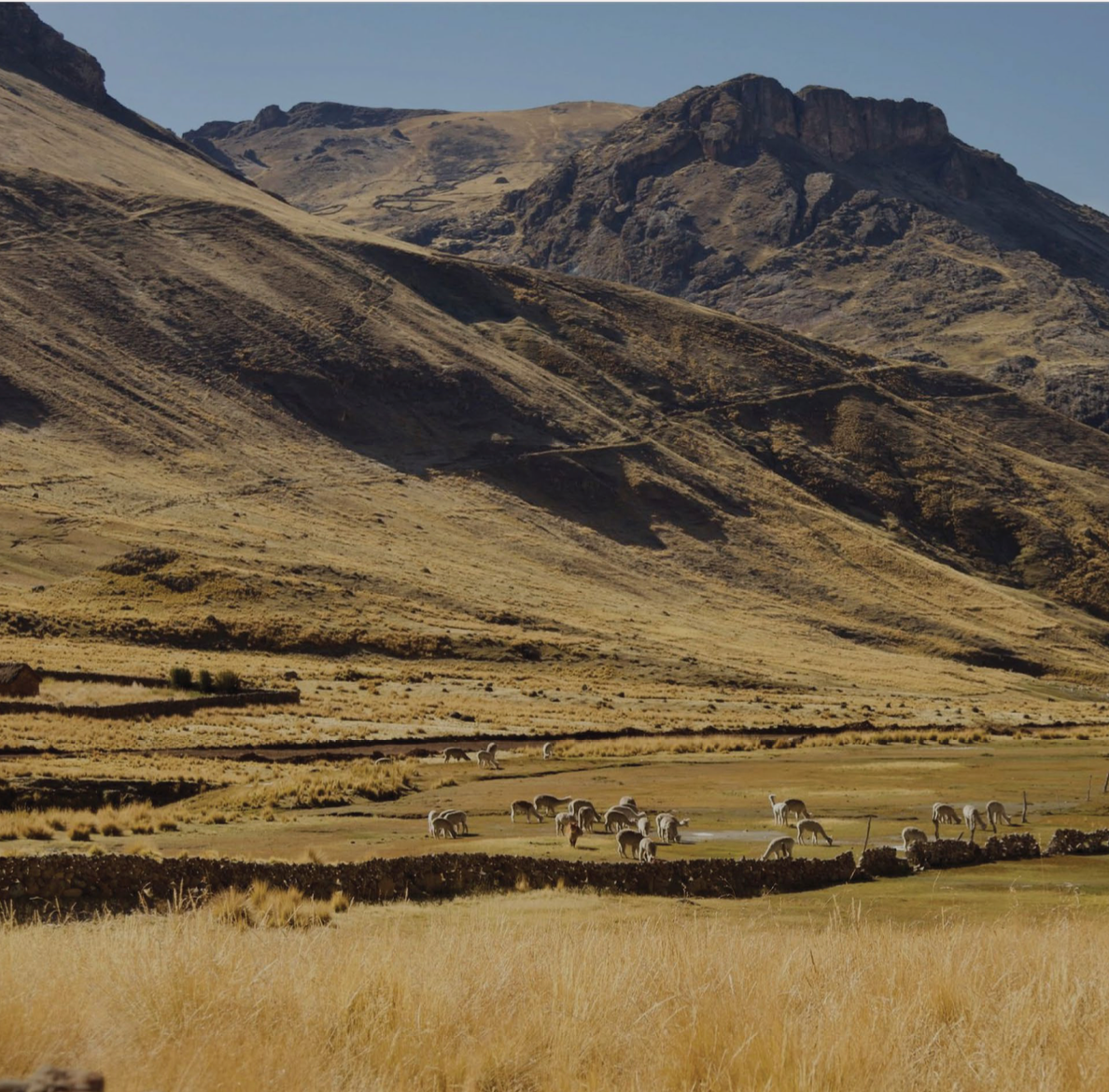
We seek a growth that is communal. Beneficial to the people wearing the clothes, and also to those who are part of our production chain. We produce and source our materials locally. We collaborate with several organizations to make sure our way of working creates a significant and valuable impact for women and their families, especially those among the most vulnerable. We believe in transparency, fair trade and care for one another.
(1)
handmade
niqueness in techniques
and innovation through
textile heritage
(2)
design
Innovation through
research and creativity
(3)
heritage
Inspiration in history,
the honoring of tradition
(4)
sustainability
Responsibility in
consumption
& production
(5)
fair trade
Economic respect for
talent & craftsmanship
(6)
positive impact
Commitment to improving
the lives of
Peruvian weavers
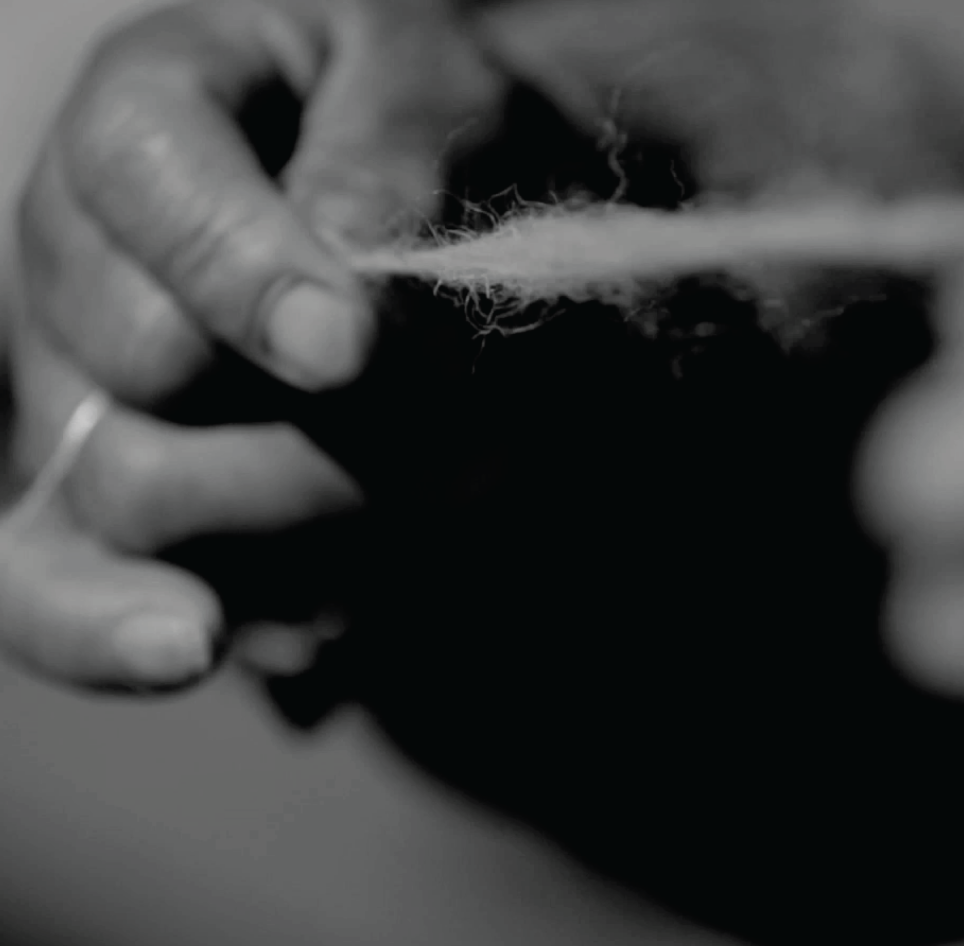
Create decent work and economic growth
Gender equality
Ending poverty
Responsible Production & Consumption
Climate Action
Creating Partnerships for the Goals.
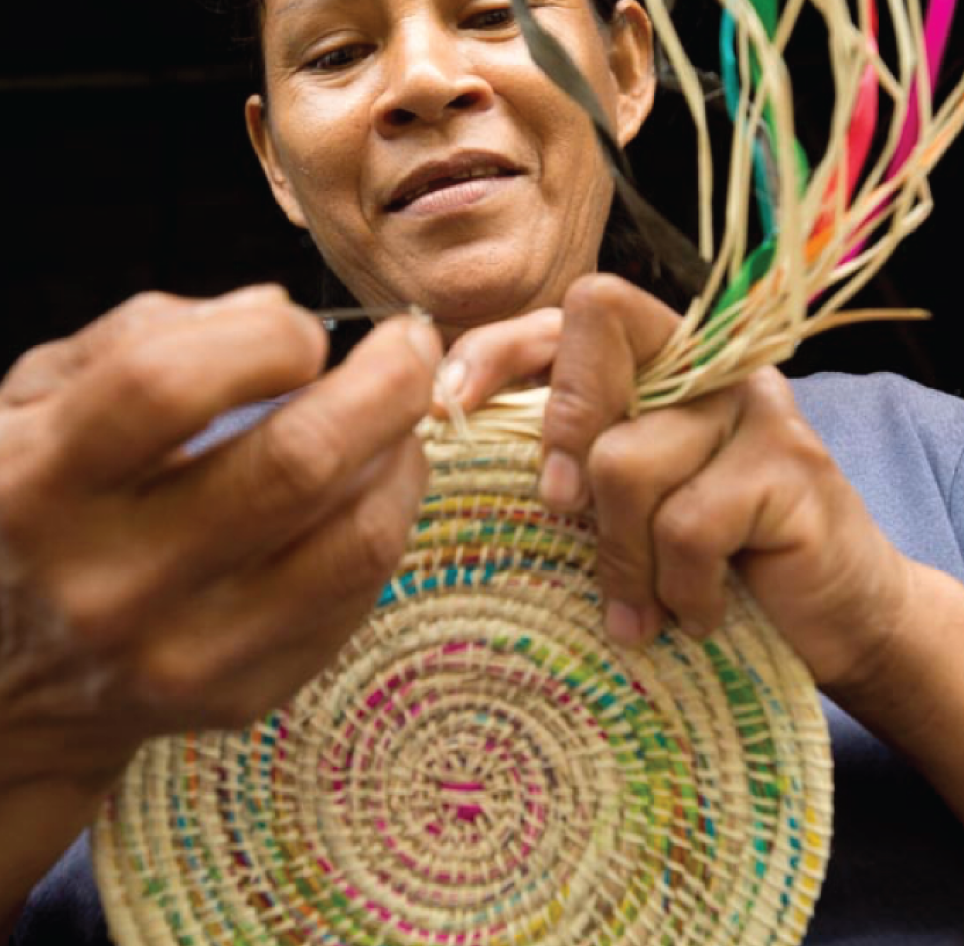
ESCVDO currently works with
ESCVDO currently works with 300 artisans and their families. 95% of this workforce are women.
We employ skilled artisans in both the sourcing of materials and the creation of our one-of-a-kind, handmade pieces, contributing to the local economies and financially supporting age-old traditions.
We are a platform for artisans to develop and preserve local techniques under the modality of business ventures and micro-enterprises. We emphasize generating opportunities for women heads of households. Our model is present in more than nine regions of Peru.
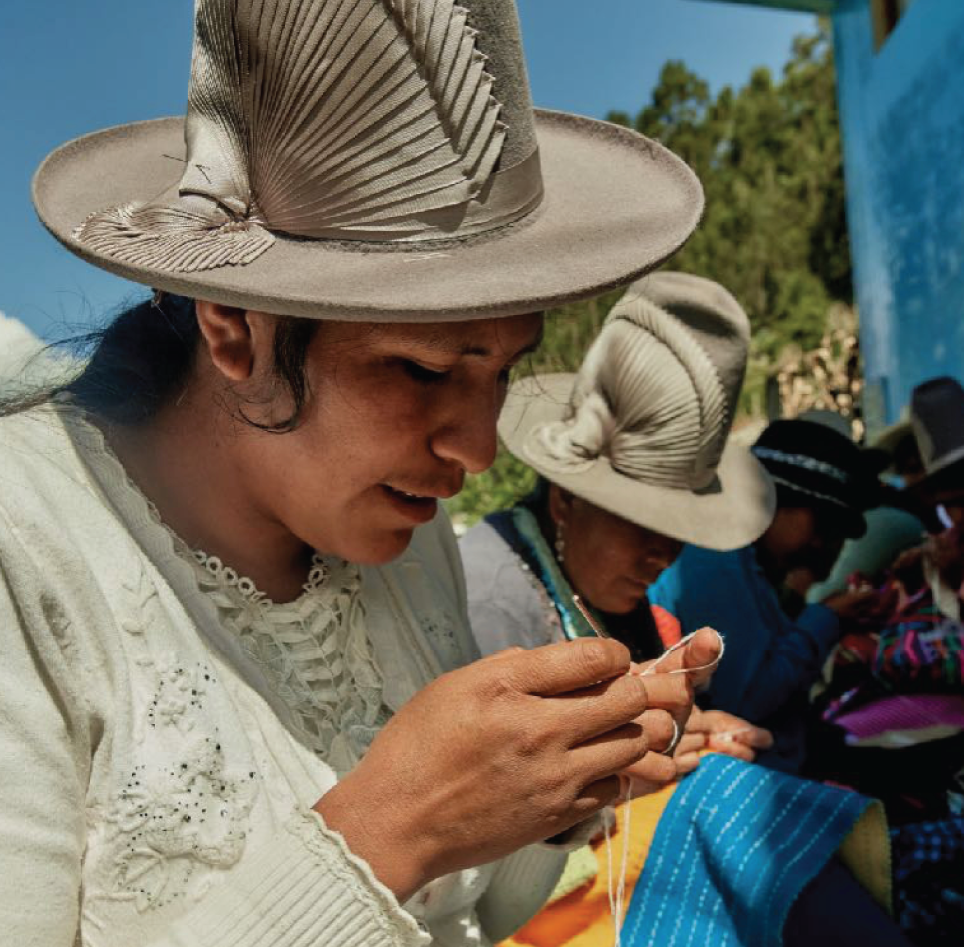
The basis of our way of working is joint growth, where the sale of a garment benefits both the brand, the customer and the people responsible for the production.
We work to train and subsequently generate job opportunities. We have established close ties with artisan communities to guarantee ethical and sustainable production, improving their quality of life and that of their families.
Our collaboration model now covers more than eight regions. We have as allies artisan organizations from all over the country, among which we can highlight.
The Kuyapa Foundation (Loreto)
Misión Huascarán, Tejiendo Esperanza (Áncash)
Manos Monas (Cusco, La Libertad and Lima Provinces)
Association of Olivia Ramos Weavers ( Huancayo)
Pedro Quincho Weavers Association (Huancavelica)
Delicia Vargas Garment Workshop (Metropolitan Lima)
Vilma Bautista (Metropolitan Lima)
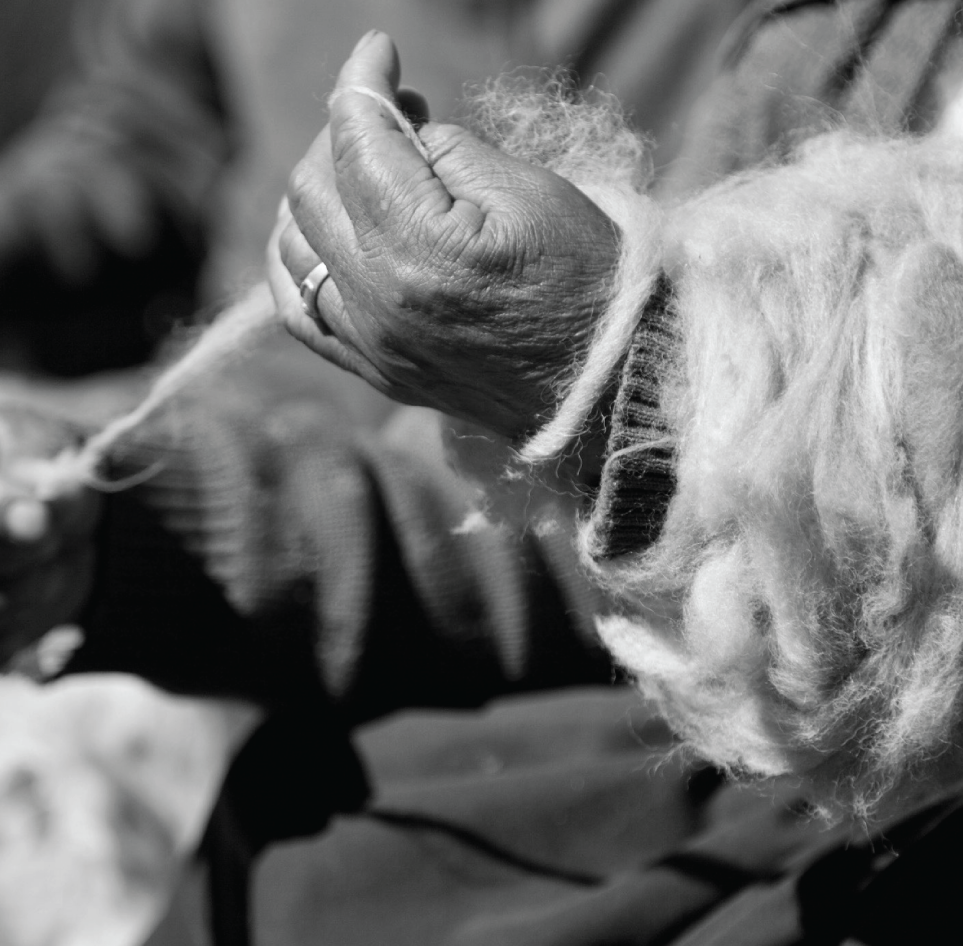
From the beginning, the brand’s purpose was to create an articulated network of artisans in Peru. We work primarily with organisations that share our aim to provide economic independence and empower women in vulnerable situations, and who share our concern with traceability.
Together with Tejiendo Esperanza, a Misión Huascarán project, we work to provide economic independence and empower women in vulnerable situations in rural areas of Huaraz. Currently, it impacts 130 weavers and their families, and the results have been measured in economic growth, the reduction of domestic violence, and the increase in educational opportunities for the children of the participants.
Our handwoven cotton fabrics are done in collaboration with artisans from the region of Huancavelica, in the heart of the Peruvian Andes. Through steady collaboration we have developed a close relationship with artisan Pedro Quincho and his team of expert weavers.
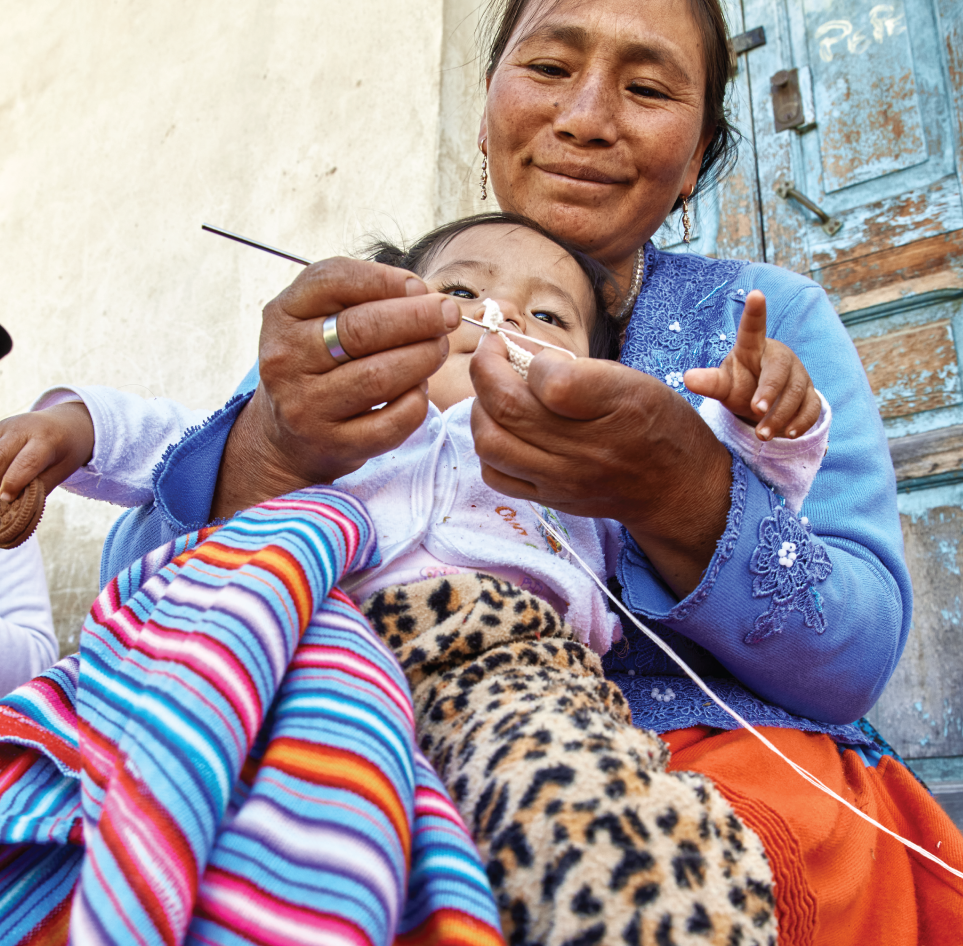
We work with organic Pima cotton from the coastal region of Pisco, Peru, that adheres to the highest fair-trade standards. Our supplier is LA COLONIAL FABRICA DE HILOS S.A. certified SGS ISO 9001, OEKO-TEX Standard 100, and GOTS. The specific cotton strain used for our garments provides the longest fibers available, yielding an exceptionally soft product.
All the alpaca wool in our production is sourced from the Peruvian Andes by INCALPACA TPX S.A. who partner with local farmers in the preservation of traditional shearing as well as the conservation and promotion of 22 natural fiber tones found in native Peruvian Alpacas. They hold a FAIR TRADE PERU GOOD PRACTICES certificate by the Peruvian government; a Gold Certificate of Compliance by WRAP; a BASC certificate of compliance; and a Carbon Footprint Certification by the Peruvian Ministry of production.
Alpaca wool is softer, lighter, and warmer than most other wools, and is considered the most eco-friendly fiber.
We also research and create with organic plant based fabrics, with techniques and materials taught to us by our allies in the Amazon region. We can highlight the “chambira” (astrocaryum chambira), a plant many communities from the Peruvian rainforest use to braid fishing nets, hammocks and other household utensils.
We have worked with women from communities in the Pacaya Samiria reservoir to create a collection of chambira accessories.
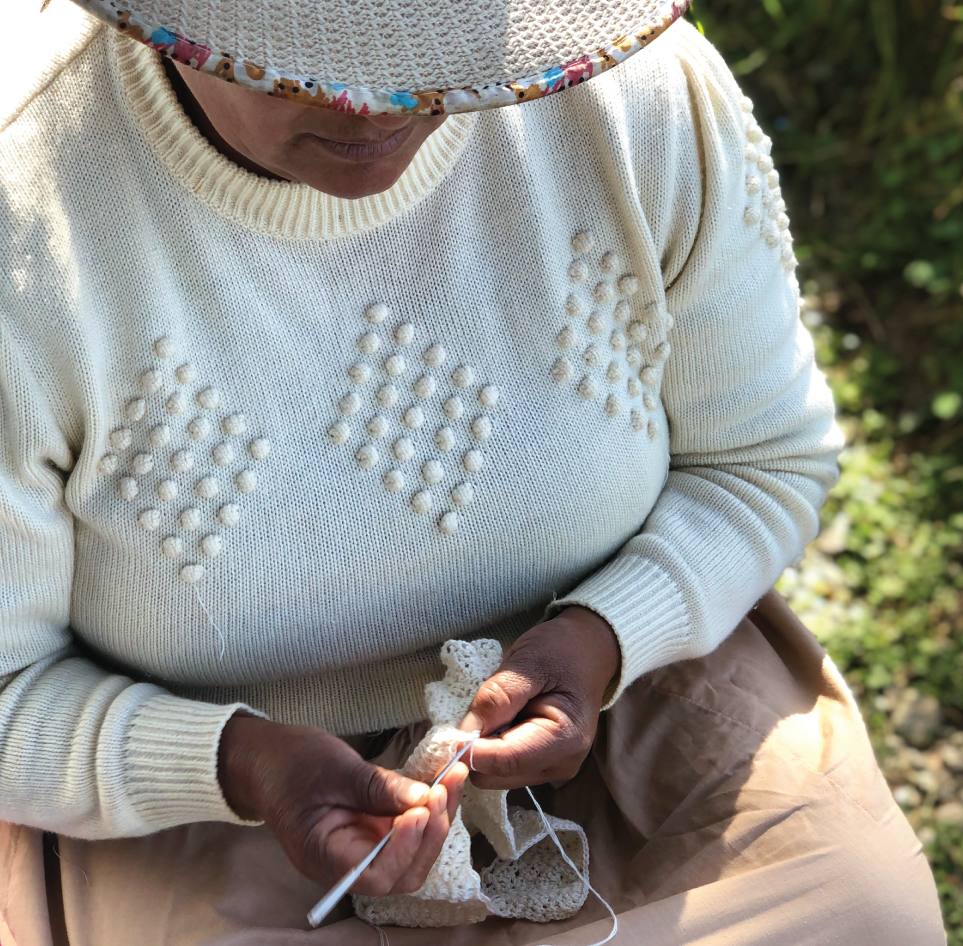
As a sustainable brand, we aim to maintain an ethical supply chain and work for people and the planet. We believe in generating comprehensive sustainability, with fully traceable products and materials. We have an environmental responsibility to care for the planet.
Currently, 50% of our clothing is pre-ordered, to help us avoid overproduction and promote the value of the craftsmanship behind each unique piece. We strive towards zero waste through innovation in textile.